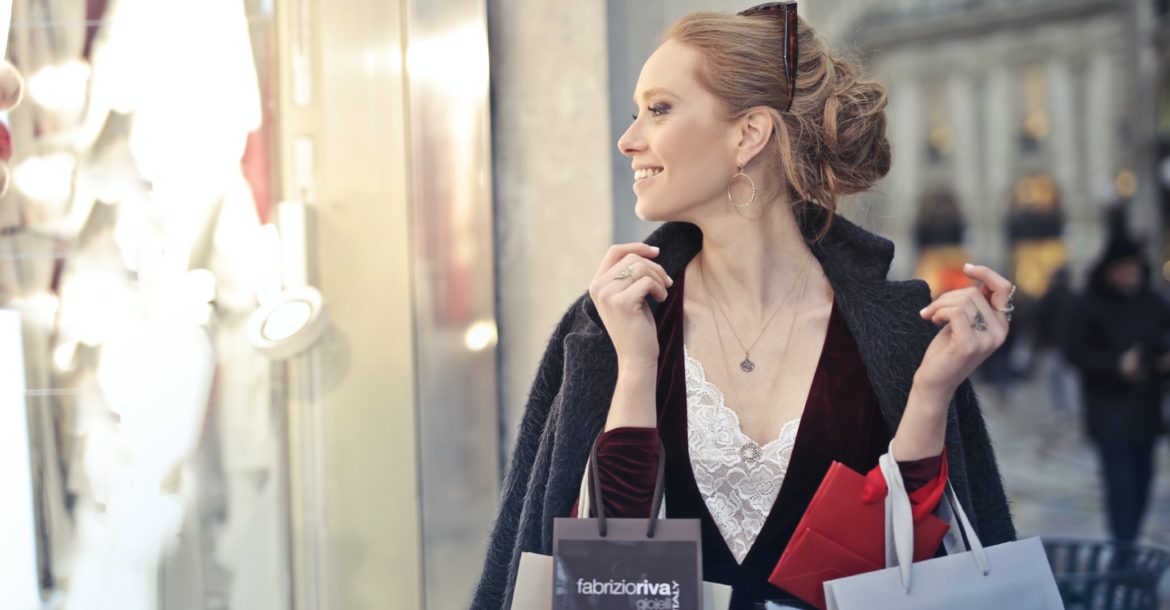MORE IS MORE.
At least that is the mentality deeply engrained while growing up in a consumerist-society. And if wealthy, privileged culture is the driver of consumerism, America is the mecca. You can’t connect to your computer, phone, or tv without being bombarded with all-too-obvious messages that you need this makeup product to be more beautiful, this brand of clothing to be relevant, or this supplement to be more fit. While some material objects do actually provide value to our lives (i.e. a warm coat to protect you from a harsh winter), psychology experts find that once our basic needs are met, material wealth contributes very little to our happiness or sense of self. In fact, it has quite the opposite effect. Numerous studies examining the factors that either support or diminish human wellbeing suggest that the more materialistic a person is, the more their life satisfaction, happiness, health, and social connections suffer.
The irony is disheartening. We are told that things will make us happy. So we buy more things. And the more things we collect, the less happy we are. So off we go to buy more things… the cycle continues. Brands and corporations collect while the human consumer is left short-changed. This is particularly evident in low-income individuals, as they can’t truly afford to participate in the mainstream culture of consumerism. Studies reveal that not being able to afford certain brands or showcase the latest trends in comparison to their peers has a remarkedly detrimental impact on self-esteem and self-image.
So why do we continue to rack up the credit card charges and encyclopedia-sized receipts just to own things that we don’t really need and that leave us so unfulfilled? The psychology behind consumerism reveals that what we are really searching for is self-worth. Notice how we are never bombarded with messages of how spirituality or enlightenment can teach you about self-love and soul fulfillment. Notice how the advertisements you see are hyper focused on image and external factors. We are intentionally taught to believe that self-worth is something that must be purchased, so we go searching for it at Bloomingdale’s.
This pressure to buy more and have more is supercharged during the holiday season. Now, not only is your self worth on the line if you don’t own the right material objects, but so is your relationship to your loved ones. The exchange of gifts, which once encompassed a genuine desire to express gratitude through generosity, has now become a monetized representation of our love or affection for that person. For example, if you spend more on them than they do you, that must mean they don’t care for you as much as you do them. Or if someone gives you a gift, you feel immense pressure to reciprocate even if you do not have the financial means to do so. The act of giving has now become more about power dynamics than altruism. And the truth is, most of what is being gifted will eventually end up in a donate pile, landfill, or simply not used enough to justify its existence.
Worldwide, humans consume 60% more of our planet’s resources than what is sustainable. Take a brief inventory of your own life, do you use 60% of what you own on a daily or even semi-regular basis? If we are being honest, the majority of what surrounds us adds little to possibly no intrinsic value to our lives. And if we stripped ourselves of the meaning we have attached to these material things, (as gifted upon us by genius marketing campaigns), they likely wouldn’t exist in our lives to begin with.
To overcome the hypnotized mindset we have adopted as consumers, we should pause to consider the things that truly contribute to our wellbeing. Search for self-worth through engaging in acts of kindness instead of acquiring it through labels. Purchase experiences that are designed to build a life instead of constructing it with things. And only hold onto material possessions that you wholeheartedly desire or need. Let the rest go.
Written by: Aubrey Koel, LPC

